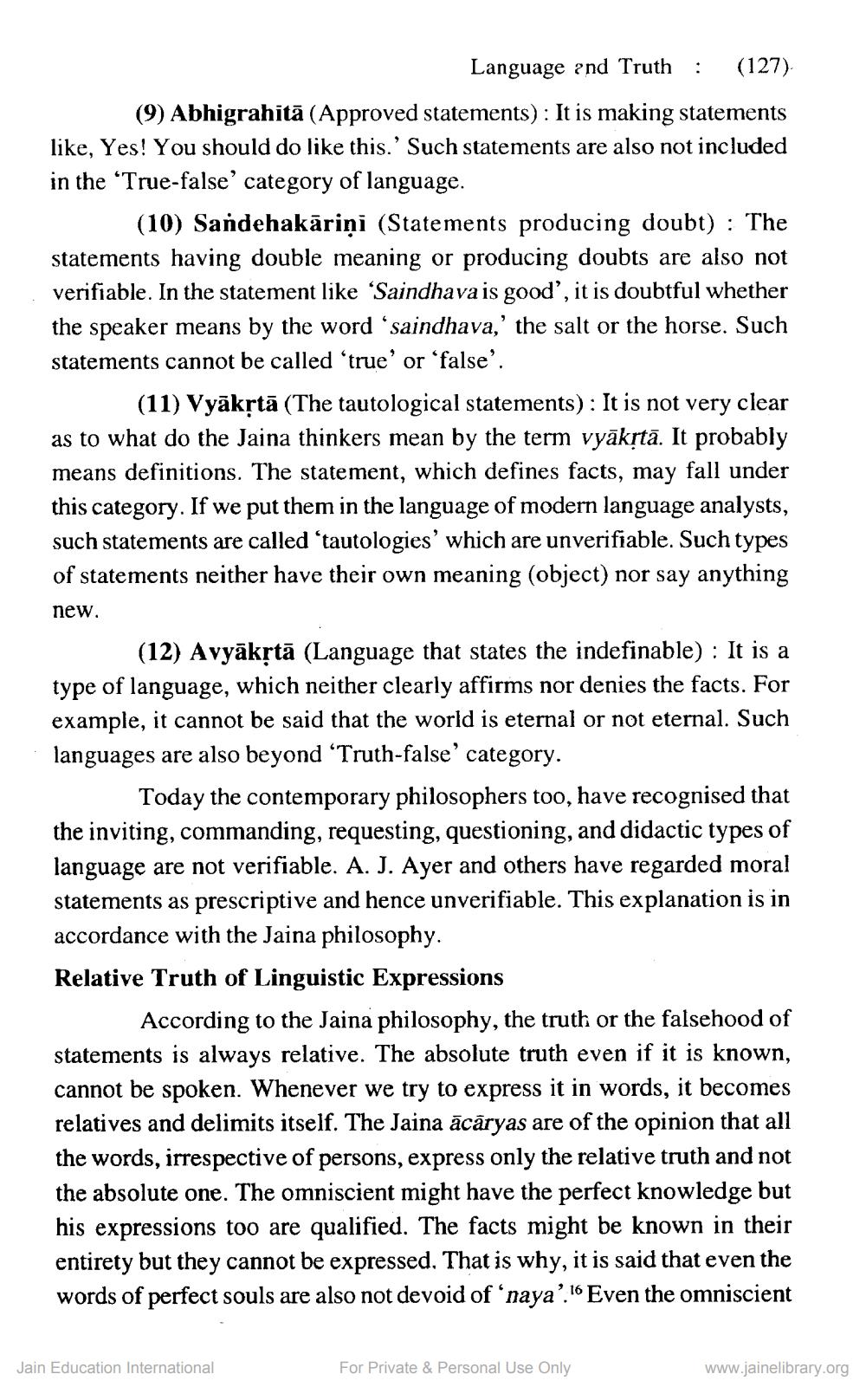________________
Language and Truth: (127). (9) Abhigrahitā (Approved statements): It is making statements like, Yes! You should do like this.' Such statements are also not included in the 'True-false' category of language.
(10) Sandehakāriņi (Statements producing doubt) : The statements having double meaning or producing doubts are also not verifiable. In the statement like 'Saindhava is good', it is doubtful whether the speaker means by the word 'saindhava,' the salt or the horse. Such statements cannot be called 'true' or 'false'.
(11) Vyākṛtā (The tautological statements): It is not very clear as to what do the Jaina thinkers mean by the term vyākstā. It probably means definitions. The statement, which defines facts, may fall under this category. If we put them in the language of modern language analysts, such statements are called 'tautologies' which are unverifiable. Such types of statements neither have their own meaning (object) nor say anything new.
(12) Avyākstā (Language that states the indefinable): It is a type of language, which neither clearly affirms nor denies the facts. For example, it cannot be said that the world is eternal or not eternal. Such languages are also beyond “Truth-false' category.
Today the contemporary philosophers too, have recognised that the inviting, commanding, requesting, questioning, and didactic types of language are not verifiable. A. J. Ayer and others have regarded moral statements as prescriptive and hence unverifiable. This explanation is in accordance with the Jaina philosophy. Relative Truth of Linguistic Expressions
According to the Jaina philosophy, the truth or the falsehood of statements is always relative. The absolute truth even if it is known, cannot be spoken. Whenever we try to express it in words, it becomes relatives and delimits itself. The Jaina ācāryas are of the opinion that all the words, irrespective of persons, express only the relative truth and not the absolute one. The omniscient might have the perfect knowledge but his expressions too are qualified. The facts might be known in their entirety but they cannot be expressed. That is why, it is said that even the words of perfect souls are also not devoid of 'naya'.' Even the omniscient
Jain Education International
For Private & Personal Use Only
www.jainelibrary.org




